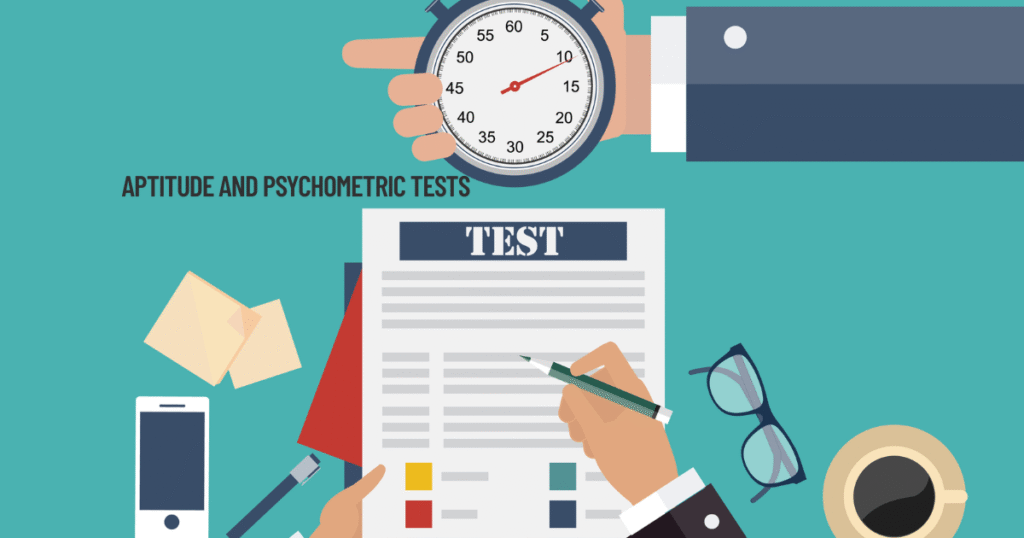Interview Exams Job today go far beyond just a series of questions. Many employers now use interview exams as part of the evaluation process to assess a candidate’s skills, problem-solving abilities, and suitability for a role. Whether you’re applying for a technical, managerial, or creative position, it’s vital to understand what these tests involve and how you can best prepare for them.
This comprehensive guide breaks down everything you need to know about interview exams—from types and structures to practical preparation strategies.
What Are Interview Exams?
Interview exams are practical assessments given during the hiring process. They are designed to test a candidate’s:
- Technical knowledge
- Problem-solving skills
- Communication abilities
- Decision-making process
- Time management
Why Employers Use Interview Exams
Interview exams help employers go beyond the resume to evaluate how well a candidate can perform under real-world conditions. It offers a more objective and skill-based metric for hiring decisions.
Types of Interview Exams
Interview exams vary widely depending on the job role, industry, and level of experience. Below are the most common types:
1. Technical Assessments
Used primarily for roles in IT, engineering, and data science, these tests might include:
- Coding challenges
- System architecture design
- Algorithm problem-solving
- Debugging tasks
2. Aptitude and Psychometric Tests

These are designed to measure your numerical ability, logical reasoning, and verbal skills. They may also include personality assessments to gauge your cultural fit.
3. Situational Judgment Tests (SJTs)
These tests present you with hypothetical scenarios and ask how you would respond. They are common in roles that involve teamwork, conflict resolution, or client interactions.
4. Case Studies and Business Simulations
Candidates are asked to solve a business problem or analyze a situation, often in written form or presentation style.
5. Written Tests and Essay Questions
These tests evaluate your writing ability, grammar, and communication clarity, especially in administrative or academic roles.
6. Group Activities and Role Plays
In group tasks, employers evaluate team collaboration, leadership, and communication skills.
7. Job Simulation Exercises
These are realistic tasks that mimic day-to-day responsibilities. Examples include responding to mock emails, data entry tasks, or customer service queries.
What to Expect During an Interview Exam
Understanding what to expect can ease anxiety and help you perform your best.
Duration
Interview exams can range from 30 minutes to several hours, depending on the test’s depth and complexity.
Format
These exams might be conducted:
- In-person
- Online (proctored or self-administered)
- As take-home assignments
Instructions and Guidelines
You’ll typically be given detailed instructions, including:
- Time limits
- Evaluation criteria
- Tools or software you may use
- Allowed or prohibited resources
How to Prepare for an Interview Exam
Preparation is key to performing well. Here’s how you can be ready for any interview exam:
1. Research the Job Role Thoroughly
Study the job description and identify the core skills required. Focus your prep on those areas.
2. Practice Sample Tests
Online platforms offer mock tests for various types of assessments like:
- Logical reasoning
- Verbal aptitude
- Coding exercises
Practicing these helps familiarize you with formats and reduces stress.
3. Master Time Management
Practice completing tasks within the given timeframe. Use a timer during mock tests to simulate real conditions.
4. Review Commonly Asked Problems
For technical roles, revisit:
- Algorithms
- Data structures
- System design questions
For business or analytical roles, go through:
- SWOT analysis
- Market entry strategies
- Financial modeling basics
5. Work on Communication Skills
In group discussions or role plays, clear articulation is crucial. Practice with a friend or record yourself to identify improvement areas.
6. Understand the Evaluation Criteria
Some exams are not just about the correct answer—they assess:
- Your thinking process
- Clarity of explanation
- Professionalism
Structure your responses accordingly.
7. Prepare Your Tools in Advance
If the test is online, check:
- Internet stability
- Required software installations
- Camera and microphone functionality (for proctored exams)
8. Get Plenty of Rest Before the Test

A well-rested mind processes information better and makes fewer errors. Avoid late-night cramming.
Tips to Ace the Interview Exam
Here are bonus tips to help you stand out:
Stay Calm Under Pressure
Many exams are designed to test how you react under stress. Practice breathing techniques to stay calm and focused.
Be Honest If You Don’t Know Something
It’s okay to admit you’re unfamiliar with a topic and explain how you would approach learning it.
Double-Check Your Work
If time permits, review your answers to correct any careless mistakes.
Ask Clarifying Questions
If instructions are unclear, don’t hesitate to ask for clarification. It shows initiative and critical thinking.
Common Mistakes to Avoid
Even the most qualified candidates can falter due to common mistakes. Avoid these pitfalls:
Skipping Instructions
Always read the instructions twice before starting. Missing out on guidelines can cost you valuable points.
Poor Time Management
Spending too long on one question can prevent you from completing the test. Practice pacing yourself.
Overcomplicating Answers
Keep your answers simple and relevant. Don’t add unnecessary jargon.
Ignoring Soft Skills
Even technical exams assess communication and collaboration. Don’t neglect these areas.
After the Interview Exam

Once you’ve completed the exam, follow up professionally:
- Send a thank-you email
- Reflect on your performance
- Note any areas for improvement
Some companies may provide feedback. If offered, use it as a learning tool for future interviews.
Also Read : Top Resources To Ace The USMLE Exams In 2025
Conclusion
Interview exams are a powerful way for employers to measure your real-world abilities. They may seem intimidating, but with the right preparation, practice, and mindset, you can not only pass these exams but also stand out as a top candidate.
Use this guide as a roadmap to understand what to expect and how to prepare effectively. Remember, every assessment is an opportunity to showcase your potential and build confidence for future opportunities.
FAQs
1. Are interview exams used for all job positions?
No, they are more common for technical, analytical, and managerial roles but can appear in any field depending on the employer.
2. How can I prepare for a coding interview exam?
Practice problems on coding platforms, review data structures, and simulate time-based challenges to get better.
3. Do I need to bring anything for an in-person interview exam?
Yes, usually your resume, identification, pens, and a calculator (if needed). Always confirm beforehand.
4. Are online interview exams monitored?
Yes, many online tests are proctored via webcam and screen sharing. Make sure to follow all rules.
5. What if I fail the interview exam?
It’s not the end—learn from the experience, ask for feedback, and prepare better next time.
